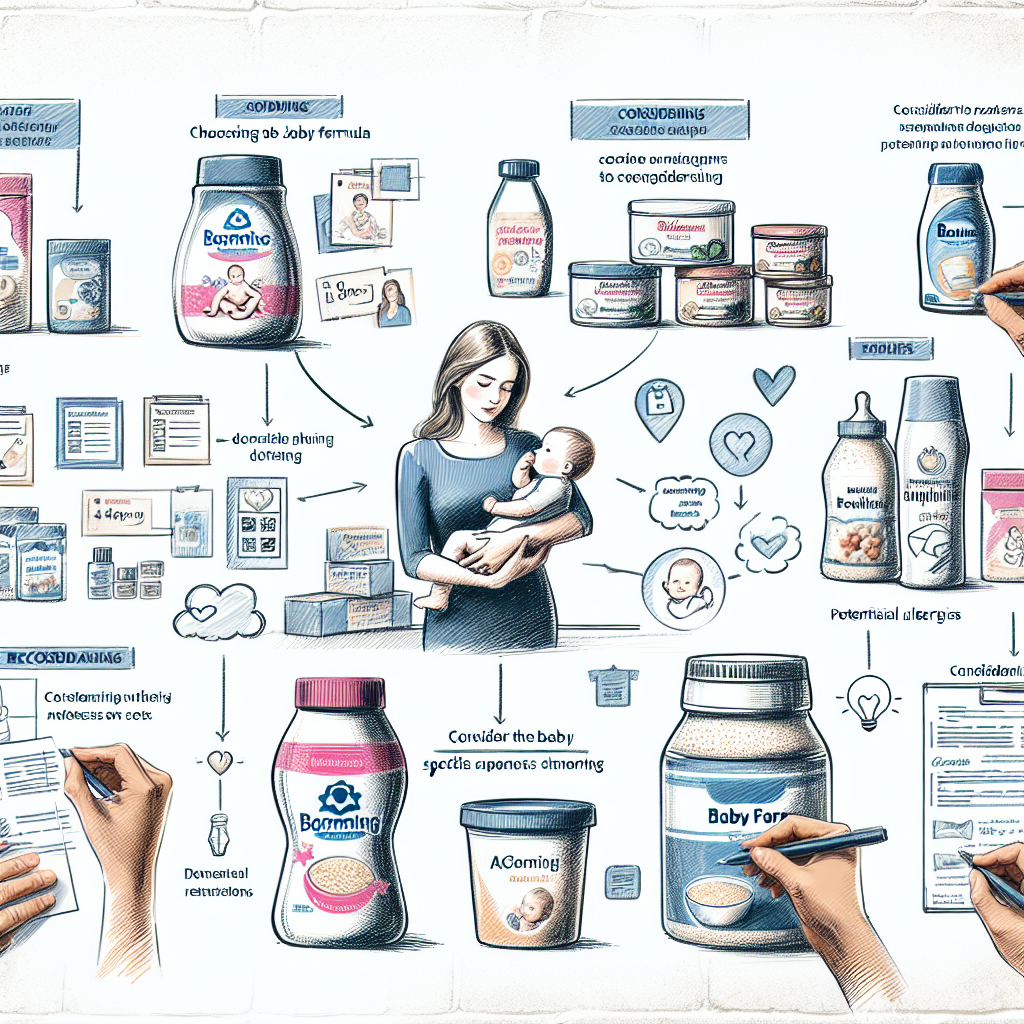Bottle Feeding: How to Choose the Right Milk Powder
Introduction
Choosing the right formula for your baby can be a challenge, especially since the market is full of diverse options. As a parent, you want to make the best decisions for your little one, and their nutrition is essential for healthy development. This complete guide will give you the information you need to understand the essential stages in your baby's development and how to choose the formula that will provide all the nutrients he needs.
What Is Powdered Milk And Why Is It Useful?
Powdered milk is a formula created to replace or supplement breast milk. It is a solution used by many parents for various reasons - from the need to return to work to difficulties in breastfeeding. The milk powder is designed to be as close as possible to the composition of breast milk and is enriched with essential vitamins and minerals for the healthy growth and development of babies.
How to Choose the Right Milk Powder?
1. Age of the Child
First of all, you need to consider the age of the child. There are specific formulas for newborns (0-6 months), infants (6-12 months) and babies over one year of age. As the child grows, the nutritional needs change, so it is important to choose a formula appropriate to the stage of development in which he is.
2. Specific Nutritional Needs
Every child is unique and some may have special nutritional needs. For example, some babies may be allergic to cow's milk protein and will need a hypoallergenic formula. Others may have difficulty digesting and may benefit from powdered milk with an easily digestible formula. Consult your pediatrician for personalized recommendations.
3. Ingredients of Milk Powder
It is vital to check the ingredients label of the powdered milk. Make sure it contains a good balance of protein, carbohydrates, fats, vitamins and minerals. Some manufacturers also add omega-3 fatty acids (DHA and ARA), which are important for brain and vision development.
4. Special Formulas
Depending on the child's specific needs, special formulas may be needed. For example, anti-reflux formulas are created for babies who experience frequent regurgitation. There are also prebiotic or probiotic formulas, which help develop a healthy intestinal flora.
Quality and Safety
When it comes to baby food, quality and safety are key. Choose products from recognized brands that meet strict manufacturing standards and are verified and approved by relevant health organizations.
How To Prepare Milk Powder
The preparation of powdered milk is a simple process, but one that requires attention and rigorous hygiene. Always follow the manufacturer's instructions and use fresh hot water to dissolve the powder. Overcooked and improperly stored food can become a breeding ground for bacteria.
What to Avoid in Bottle Feeding?
1. Overeating
A common risk in bottle feeding is overfeeding. Bottle-fed babies can more easily consume more milk than they need, so it's important to know their fullness signals and follow general feeding guidelines.
2. The bottle at bedtime
Do not let your baby fall asleep with the bottle in his mouth, as this habit can lead to cavities. It is also important not to use the bottle in place of other soothing or weaning methods.
3. Heating in the Microwave Oven
Avoid heating the formula in the microwave as it can cause uneven heating and burn the baby's mouth.
Conclusion
In conclusion, choosing the right milk powder is an essential step in ensuring a balanced and healthy diet for your baby. Learning the key stages in your baby's development and how to choose the right formula for your baby's needs will help you navigate this experience with more confidence. Remember to consult a pediatrician for personalized recommendations and choose quality products from trusted brands . Proper nutrition in the first years of life lays the foundations for healthy and happy development.














































































































































